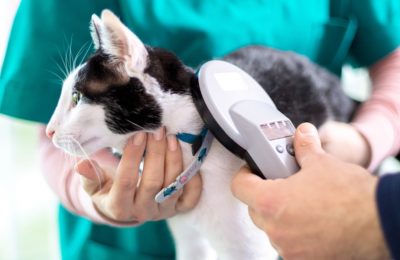Thousands of Britons enjoy trips to Europe with Cat and Dog in tow, thanks to the Pet Passport. Having the correct documentation makes crossing borders a breeze, and enjoying the sights and sounds from Porto to Poland is infinitely more fun with our furry friends. Not to mention sparing yourself any vacation separation anxiety.
So what might Brexit mean for the free movement of the UK’s pets?
he PETS scheme, or Pet Passport as it’s more commonly called, was spearheaded by the UK and introduced in 2000. Between 2012 and 2014 the EU took up this scheme and rolled it out across its member states by standardising entry requirements. Now you can easily take your dog, cat, or ferret with you, provided their passport conforms to the current standards, which detail their microchip number, a confirmed rabies vaccination, and if returning to the UK, a tapeworm treatment.
The PETS passport scheme is now European legislation, and so the forthcoming vote over Britain’s continued membership of the EU has consequences for those planning trips with their four-legged family members in the years to come.
Or does it?

All those against say MEOW!
Let’s have a closer look at what we’re currently enjoying:
UK residents make over 20m visits to European countries each year. As a nation renowned for being animal lovers it makes sense that many Brits want to take their pet on holiday with them. Travelling by Eurostar, in particular, has made this easy, with over a million dogs travelling to the continent this way since 2012. The benefits of taking a dog along on your trip go far beyond being able to keep an eye on them. Besides saving on dogsitting or kennel fees, you’ll see more of the country with the regular breaks they’ll need to stretch their legs and answer the call of nature. You’ll might even get speaking to more locals in the international language of dog walkers worldwide. What’s more, it’s never been easier to find pet-friendly places to stay thanks to the likes of EuroPetNet, Bring Fido and PetsPyjamas.
If we leave, will tourism and travel actually change between the UK and Europe?
A vote for Brexit may well push back the PETS Passport scheme to pre-2012 conditions, and the possibility of renegotiation or a whole new system could be very real. Then again, seeing as it was the UK that set the standard in the first place and adopted by the EU there is no reason why a symbiotic agreement over pets (or wider tourism) can’t continue just under a different guise. That is unless Lolita the Pug from Lyon decides to claim Job Seekers Allowance.
While the current system does have issues with people exploiting or abusing it, the vast majority of Pet Passport users are holidaymakers or regular travellers who prefer to bring their pets. The Europe-wide implementation of microchipping and vaccination has the capability to boost animal welfare substantially across the continent, and many argue that what’s needed isn’t a renegotiation but just firmer and more robust implementation of the measures already in place. After all, all wide-ranging systems are open to abuse, and borders hardly limit that sort of behaviour.

All those in favour say WOOF!
What are the downsides to the easy movement of pets in the EU?
One of the changes from the old UK scheme to the EU passport has been a reduction in the waiting time after a rabies vaccination from six months to three weeks. On the flip side of this seemingly positive progress, it has been a tragedy for the many pets brought in from puppy farms across Europe for sale in the UK, as they’re now often brought into the country at 15 weeks old – or younger. According to a study by the Dogs Trust, the number of dogs travelling under the PETS scheme to the UK from Lithuania increased by 780% between 2011 and 2013, and other countries also showed a sharp increase in the number of animals brought into the UK.
But the quantity isn’t the only problem. Unscrupulous breeders and dealers are falsifying their documentation, knowing that most staff checking on a border will be unable to tell the difference between a nine-week-old puppy and one that is of legal age. Perhaps most worryingly this lets importers falsify rabies documentation for animals originating in countries that suffer from rabies epidemics, as the vaccine is ineffective on puppies less than twelve weeks old.
In addition to this, the huge increase in pet movement is a logistical nightmare for vets and agencies dealing with animal welfare issues. Many have simply been overwhelmed and are unable to maintain around-the-clock checks at borders. So might a temporary reduction in travel be a good thing, and allow the system on pet travel to take stock and improve? Not forgetting the UK’s standards led the way to begin with.
The ball is now in our backyard...
While the fate of Britain in Europe is yet to be decided by us on 24th June, and the government yet to come up with any contingency plans should we vote to leave, Cat and Dog might have to brace themselves for a hiatus in chasing chorizo or guzzling garlic sausage.
One thing that’s always worth having, wherever you travel with your pets, is good insurance - from unfamiliar wildlife to linguistic misunderstandings, dealing with vets in foreign countries can be stressful.
CatDogFish will soon offer extended travel insurance for pets on the Pet Travel Scheme, including quarantine costs, loss of passport, repeated worming treatments and emergency accommodation.







